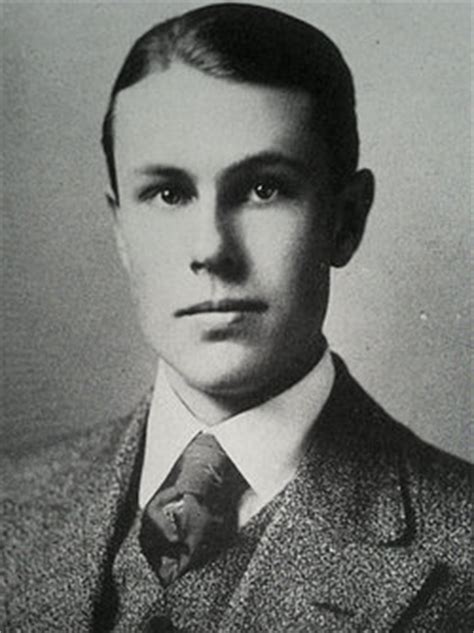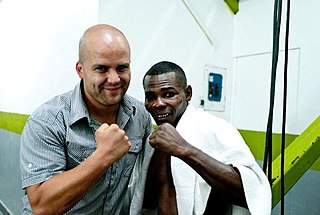A Quote by Edgar Ramirez
Duran is a mythological figure in Latin America. He grew up in a time of turbulence because Panama was basically occupied by the United States. So he felt obliged to fight Americans in the ring. He felt the whole pride of his country and the need for cultural and political emancipation in his hands.
Related Quotes
For a long time I felt that FDR had developed many thoughts and ideas that were his own to benefit this country, the United States. But, he didn't. Most of his thoughts, his political ammunition, as it were, were carefully manufactured for him in advance by the Council on Foreign Relations - One World Money group. Brilliantly, with great gusto, like a fine piece of artillery, he exploded that prepared "ammunition" in the middle of an unsuspecting target, the American people, and thus paid off and returned his internationalist political support.
What everybody forgets is that when I was a journalist in Britain and in the United States, I was always a Canadian. And the price of expatriation does not go down, it goes up. I never felt part of the political common sense of Britain. I never felt it in the United States. I had no natural home in Britain and the U.S.
The president of the United States of North America, George W. Bush, the little gentleman of the North, the political cadaver that is visiting South America, that little gentleman is the president of all the history of the United States, and in the history of the United States, he has the lowest level of approval in his own country.
Things have changed in Latin America now. We mostly have democratic governments in Latin America, so the position of the writer has changed. It is not as Neruda used to say, that a Latin American writer walks around with the body of his people on his back. Now, we have citizens, we have public means of expression, political parties, congress, unions. So, the writer's position has changed, we now consider ourselves to be citizens - not spokespeople for everybody - but citizens that participate in the political and social process of the country.
At the Rose bowl, when America was playing Mexico, and those that live in this country who have come here from Mexico booed the United States - there's a huge problem with that. This is not the first time that this has happened and I think that, that is because in the United States the cultural Marxist ideas of separating people into different racial groups.
I'm really interested in the United States, what it means to be American - maybe because my father's an immigrant and my grandparents were immigrants, and also because I grew up so isolated from mainstream life, and it was such a total shock to leave the commune and, in a way, enter America for the first time when I was eleven - so I've always felt a little like an anthropologist - like, what is this strange place I find myself in, what are the rules here?
Branches grew from his hands, his hair. His thoughts tangled like roots in the ground. He strained upward. Pitch ran like tears down his back. His name formed his core; ring upon ring of silence built around it. His face rose high above the forests. Gripped to earth, bending to the wind's fury, he disappeared within himself, behind the hard, wind-scrolled shield of his experiences.
Stuart Hall was an utterly unique figure. Although he arrived at the age of 19 from Jamaica and spent the rest of his life here, he never felt at home in Britain. This juxtaposition was a crucial source of his strength and originality. Because of his colour and origin, he saw the country differently - not as a native, but as an outsider.
The man who will go where his colors go, without asking, who will fight a phantom foe in the jungle and mountain range, without counting, and who will suffer and die in the midst of incredible hardship, without complaint, is still what he has always been, from Imperial Rome to sceptered Britain to democratic America. He is the stuff of which legions are made. His pride is in his colors and his regiment, his training hard and thorough and coldly realistic, to fit him for what he must face and his obedience is to his orders. He has been called United States Marine.
Even here in America, we felt the cool, refreshing breeze of freedom when Nelson Mandela took the seat of Presidency in his country where formerly he was not even allowed to vote. We were enlarged by tears of pride as we saw Nelson Mandela's former prison guards invited, courteously, by him to watch from the front rows his inauguration.



































